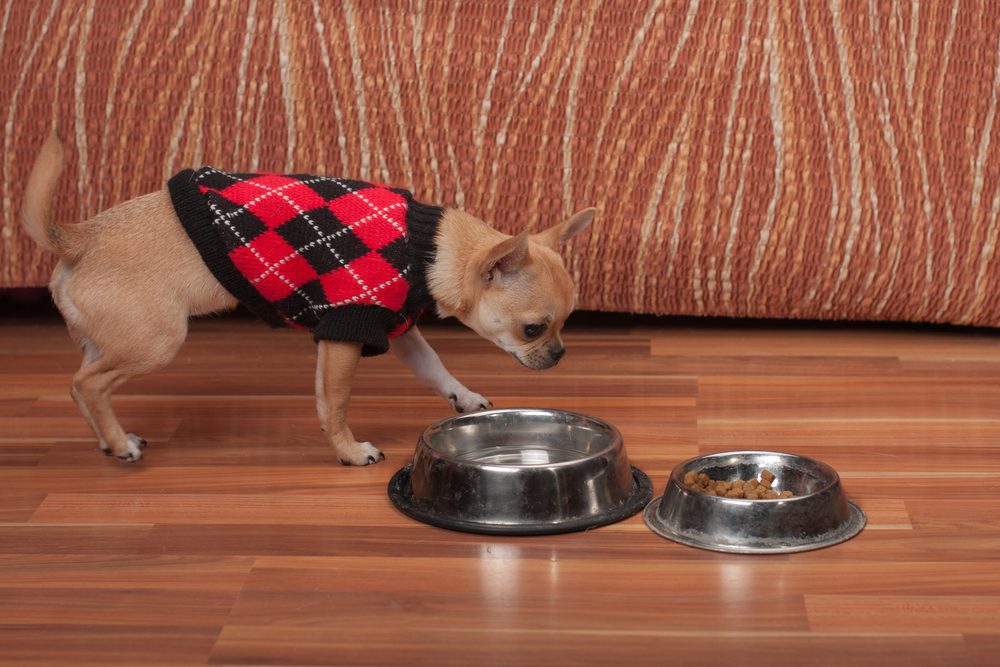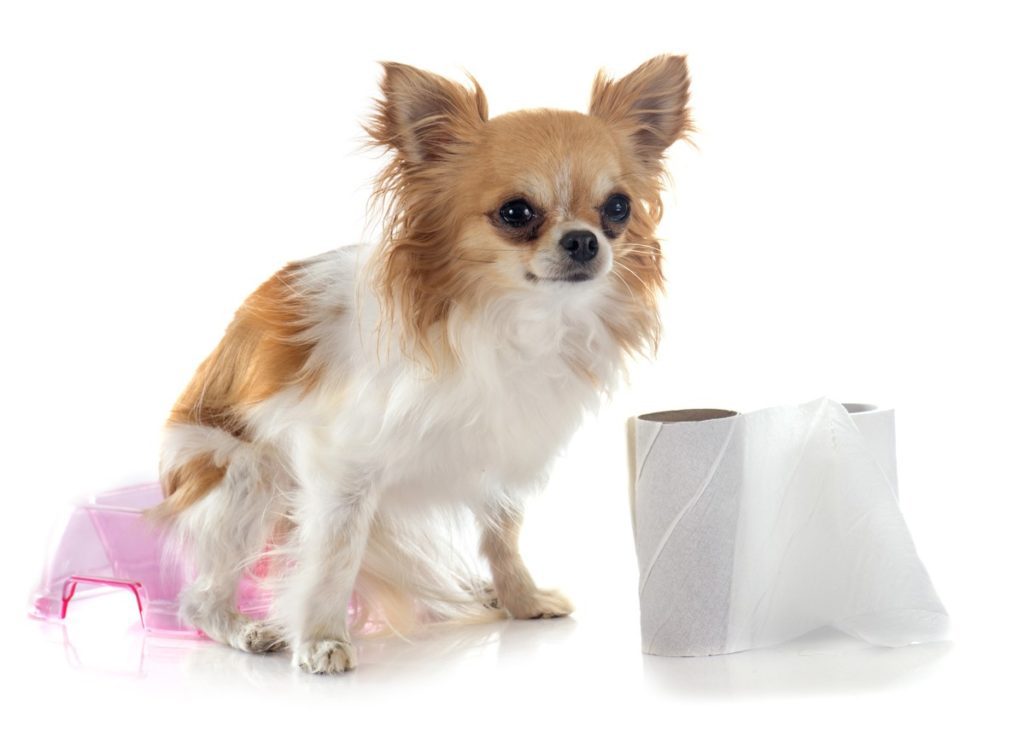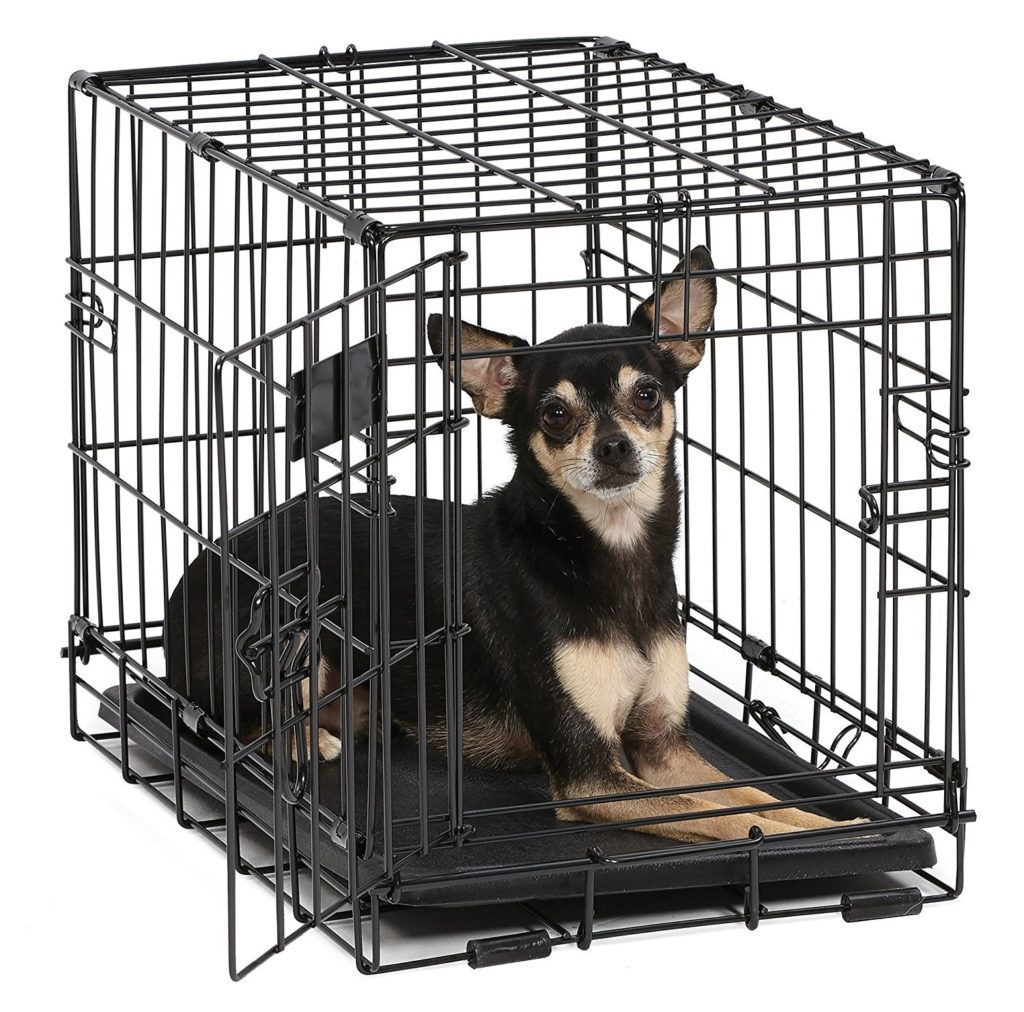How to housebreak a Chihuahua (or any dog).
On Chihuahua forums, I’ve come across many questions about how to housebreak a Chihuahua. It seems that there are a lot of you out there that are having this problem. I’ve not experienced a problem housebreaking a Chihuahua in all my years of experience, and I’ve always used this method. All my Chihuahuas were housebroken in 6 weeks time. I’m not bragging, I’m just telling you that this method will work. This is a tried and true method of how to housebreak a Chihuahua. I’ve used it, and other dog trainers recommend it. If you follow through and are consistent, you will no longer have to clean up messes that your little Chi has left behind.
When should you begin to housebreak a Chihuahua?
Although you can start to housebreak a Chihuahua puppy very early, don’t expect too much until they are at least 16 weeks old. Tiny puppies have tiny bladders.
But my Chihuahua came to our home as an adult dog, is it too late?
Never! The old saying “You can’t teach an old dog new tricks” simply is not true. However, when it comes to housetraining a Chihuahua adult, it will take longer to train them, so you will need lots of patience.
If they have been eliminating anywhere they like for a while you basically have to un-train them from that first. In order for any method of housebreaking, it takes patience, yes, but also consistency. Consistency is just as important as patience. You simply can not be hyper-vigilant one day and lackadaisical the next. In fact, this is the main reason for not being successful. You may think it is taking too long, lose patience and just give up. Resist that urge.

I promise that if you doggedly (ha ha, see what I did there?) persist you will win. There is no such thing as a stupid or stubborn dog.
A foolproof method to housebreaking your Chihuahua
- Establishing Regular Eating Habits
- Confining to a crate
- Regular and consistent trips outdoors
- Lots and lots of praise
- Correct mistakes immediately
- Get rid of odors promptly
Regular eating habits:
Having a regular eating schedule is crucial to your success. What goes in regularly also comes out regularly.
That schedule is one you will have to choose according to your lifestyle. Just be aware that the more often your dog eats and drinks the more often they will have to relieve themselves.

If you work, perhaps once in the morning and once when you return home. However, definitely not close to bedtime. While training, do not allow your dog to graze all day long.
Dogs are creatures of habit and routine. They are quite content to eat at the same time every day and eating the same thing every day.
Confining to a crate:
Dogs are den animals. It is not cruel to confine your dog to a crate for short periods. In fact, they feel safe there. The best part of that for housebreaking a Chihuahua is they also don’t like to eliminate where they sleep. Oh, but they will if left confined for long periods and have no choice. You don’t want that to happen because they also will get used to it and any place in the house will not be off limits for them. See: To crate or not to crate, that is the question
Never let your dog have free reign of the house until he is completely trained. Do take them outside often while they are little, especially right after they have eaten, drank or after a play session. Generally speaking, a puppy can hold his bladder one hour for every month of age. If they are 2 months old, take them out every 2 hours, 3 months, 3 hours, etc. As they grow they will be able to hold and control their elimination for longer periods of time. Be sure to allow lots of supervised playtime outside the crate. NEVER, NEVER leave a dog in a crate all day long or for very long periods of time.
Remember crate confinement is just while you are housebreaking a Chihuahua. You don’t have to use a crate forever. Although some dogs enjoy their away and alone time (just like some people) and may go to their crate on their own. That’s a good thing.
Regular and consistent trips outdoors:
This is a must. You have to be consistent and stick to a schedule. If you are unable to, enlist a family member or hire someone to come and let them out at scheduled times. This is not something you will have to do forever. But even when they are completely housebroken, you are asking for trouble if you leave a dog alone for very long periods of time. They need human interaction and stimulation. If they don’t get that they become bored and may develop bad behaviors, including eliminating in the house.
Use a cue word or short phrase, such as “potty” or “do your duty”, whatever works for you. They will come to understand what it means and what you want from them. Allow them enough time. If after you have allowed sufficient time and they have not eliminated take them back to their crate and try again every 15 to 20 minutes.
Give lots and Lots of praise:
When you take them out and they obediently potty outside, give them a treat and lots of praise. Dogs just want to please you. As a warning though, it’s best to treat them every other time or every few times. If not, they will come to expect a treat every time. They will be just as happy with a little outdoor play or a longer walk as a reward for good behavior.
Correct immediately and consistently:
Even with all your diligence, accidents may happen. If they do, remain calm and never yell at or hit a dog. All that teaches them is to fear you. Instead, calmly pick them up and take them outside give them the cue and allow time. If they don’t (after all they already did), take them back to their crate and continue adhering to your schedule.
Remove odors promptly:
Dogs have a million more smell receptors than humans do. How many millions more depends on the breed, but suffice it to say they can smell way better than we do. They know exactly where they have gone before and where every other dog in the neighborhood has gone before. The point being they are attracted to that smell and will go again in that same spot if they are allowed to. There are several brands of odor removing products that work well.
SHOP FOR ODOR ELIMINATORS HERE >
Outdoor vs Potty Pads or Litter Trays
All of these steps can be applied to paper or litter tray training. However, housebreaking a Chihuahua is NOT a step up from paper training. If you intend for your dog to always go outside, don’t even introduce paper or litter tray training. Paper and litter tray training is useful and may be necessary if you live in an apartment or for an older dog who is not capable of going outside. Elderly ones that find it hard to take their dogs outdoors may also prefer paper or litter tray training.
Conclusion
If you strictly and consistently adhere to these six steps you will soon have a housebroken Chihuahua. Remember it is NOT cruel or hard-hearted to confine a dog to a crate (for short periods only). I have crate trained my dogs this way and they are healthy, happy, well-adjusted and housebroken. They also go to their crate on their own often to just relax and sleep.
Up Next: Part VI, Training Your Chihuahua to Sit
Did you miss Part I, Introduction
Part II, Your Job as a Trainer
Part III, The Number One Reason People Fail
Part IV, The Mechanics of Training

